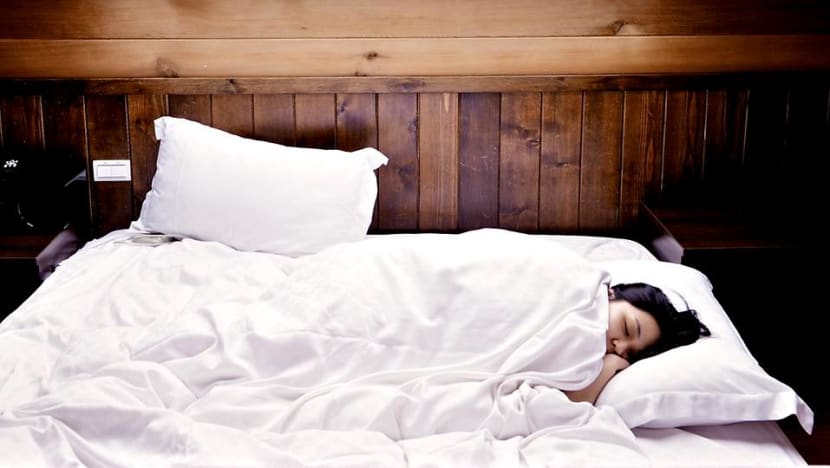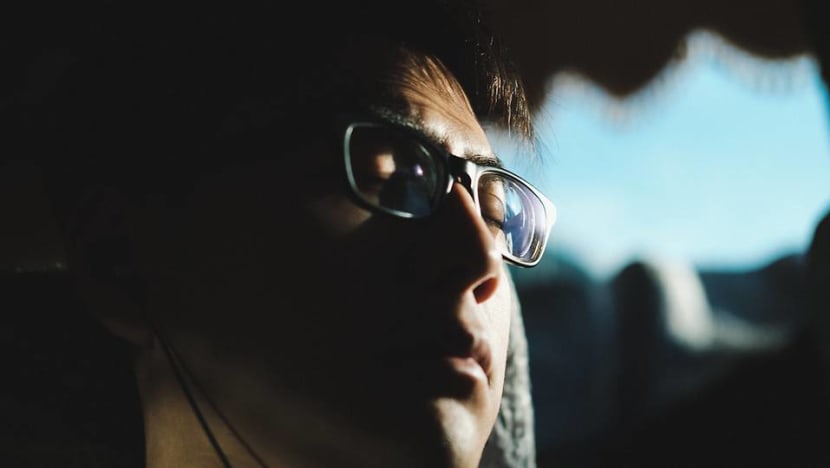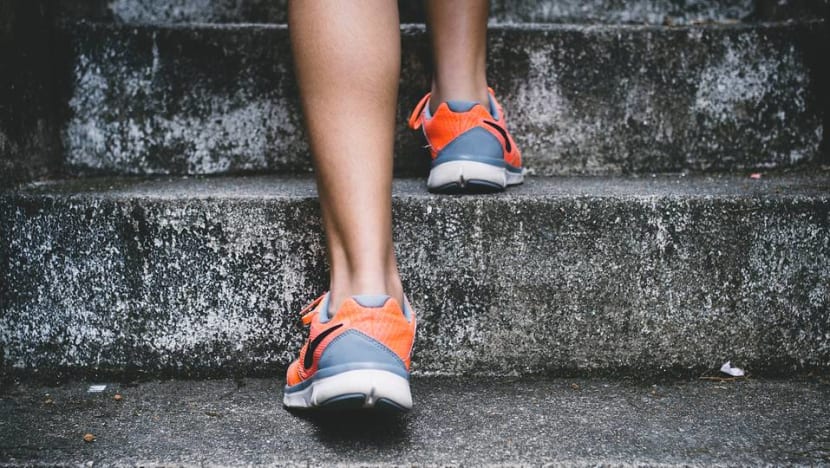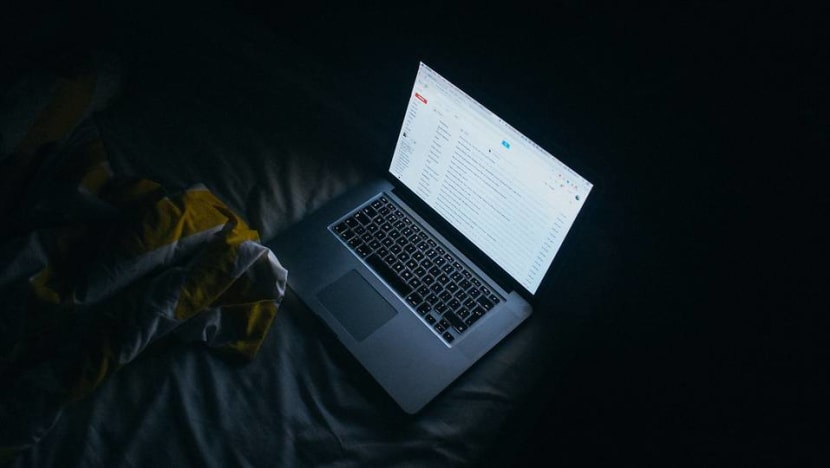Struggling to wake up every morning?
CNA Lifestyle spoke with experts to find out how you can tweak your sleep cycle and be less of a sour puss in the morning.

If waking up in the morning makes you feel like this, blame it on your genes. (Photo: Pixabay/skeeze)
Urgh. Waking up early. There is nothing more annoying than having to leave your sweet, sweet bed when the alarm goes off – especially after a particularly exhilarating 2am World Cup match the night before.
But you have a job to do and bills to pay - and your boss isn't a fan of flexible work arrangements. Or you might work unusual hours that require you to be up when the rest of Singapore is still asleep. Like Gold 905 DJs Vernetta Lopez and Mike Kasem.
The duo, who helms the 6am-to-10am show from Monday to Friday, starts their day at 4.30am. "After doing the morning show for almost 10 years, I still wake up every morning groaning and moaning," said Lopez, a self-confessed night owl.
Even early riser Kasem finds it a struggle. "Waking up at 4.30am is not a regular morning person routine! I'd go through my morning routine with the thought, 'this is horrible, this is horrible', playing in my head," he laughed.
WHAT MAKES A MORNING OR NIGHT PERSON
It's all in your DNA, apparently. Genes are what determine your circadian rhythm - that internal body clock that decides when you wake and when you get sleepy. In a 2016 study by 23&Me - a DNA-sequencing company - morning people were found to have 15 gene variations. The study involved more than 89,000 participants and was published in Nature Communications.

The researchers also found that early risers are likely to have a lower BMI, and suffer less from insomnia and depression than night owls. The trade-off? Morning people typically need more than eight hours of sleep each night, according to the study.
But while your genes can influence your sleep cycle, they aren't the only factors affecting your sleep preference. For instance, the researchers found that those over the age of 60 are more likely to be morning people. So your age, as well as social and environmental factors are deciding factors too.
SHOULD YOU RISE EARLY TOO?
Apple CEO Tim Cook purportedly wakes up at 3.45am. By comparison, Virgin Group founder and entrepreneur Richard Branson is a "late" riser, starting his day at 5.45am. But just because successful people wake up early, should you set your alarm for 5am too?

Not necessarily, as both camps have their redeeming qualities. In a 2017 study published in scientific journal PLoS ONE, researchers found that morning people tend to be more analytical and achieve more academically, while the evening ones may be more creative, and perform better in memory and processing speed.
The good thing is, nothing is fixed in stone. You can train yourself to sleep and wake earlier, said psychiatrist Tan Shian Ming from the Singapore General Hospital's Department of Psychiatry. When night owls are allowed to wake up at their natural waking time every day, they tend to sleep later and wake up later, he said.
"But if they have to maintain a fixed waking time to get to work or school, they would have to spend more effort to get going in the morning. And their circadian clocks would become entrained by the hours they have to keep," said Dr Tan.

The caveat: Because you are overriding your body's clock, it takes discipline to see change, said Dr Tan. "It is generally believed that one’s internal clock resets at a rate of about one hour per day, and some people's systems may take longer," he said.
YOU WORK SHIFTS
Not everyone does the 9-to-5 routine. If your job requires you to work shifts, there are ways to help your sleep cycle adapt better - resulting in you feeling more alert and less prone to accidents and errors.
Gleneagles Medical Centre neurologist Lim Li Ling suggested asking to stay on a shift for an extended period of time and take on shifts that move forward with the clock. For instance, do two weeks on morning shift, followed by two weeks on afternoon shift, and another two weeks on night shift.

"In general, the body functions best by getting sleep on a regular basis, so aim for a stable sleep-wake timing as much as possible. It is harder to adjust to rapidly changing shifts that are random or haphazard. So, forward-rotating shifts are generally ideal for shift workers," she said.
Alternatively, take on a shift permanently. "The body functions best when there is a stable rhythm of sleep-wake," said Dr Lim. "So, if someone is on the permanent afternoon shift from 3pm to 11pm, his daily sleep can be standardised from 2am to 10am."
HOW TO WAKE UP FEELING LESS GRUMPY
- Get enough sleep and wake naturally
It is better to catch sufficient sound sleep (seven to nine hours) the night before and wake up naturally, than to have an alarm do the job, said Dr Lim. "Once we have received enough sleep, it is natural for the brain to wake itself up," she said. Consistency is also key. "Have a stable wake time that does not vary too much, even on weekends," said Dr Lim.
- Use an alarm that works for you
If not using an alarm worries you about over-sleeping, go ahead and use one. As for the perfect tone to get you out of bed, it all depends on what works for you. Light sleepers who find loud alarm tones too jarring for a wake-up call can opt for a gentler sound to start their day.

Others, like radio host Lopez, swear by a loud alarm to get up. "I used to snooze three or four times when I used a gentle alarm tone. After switching to a louder one, I only hit the snooze button twice," she said.
- Establish a get-out-of-bed routine
For Lopez's co-host Kasem, it's all about getting out of bed fast. "I don't get out of bed slowly," he said. "I hear the alarm and I'm up, literally. I'll kick my feet up, swing myself up and get out of bed. I never snooze; snoozing doesn't help."
If waking up like Kasem isn't your cup of tea, getting ready for the day or having breakfast in bright light (natural, preferably) can work off the grogginess. Light exposure makes your body taper off its production of the sleep hormone melatonin. If you wake before sunrise or if it's a grey day, switch on the brightest light you have at home.
- Find motivation to get up
"Focus on the good points of waking up early to go to work," said Lopez. "For example, the air is crisp, and there's virtually no traffic. I enjoy the solitude, quietness and fresh air. Also, I'm done with work by 10am, so I am free to schedule things for the rest of the day," she said.

- Avoid caffeine past noon
If you are extremely sensitive to caffeine, best to lay off the latte after lunch. "Caffeine may stay in your system for 10 to 12 hours," said Dr Lim.
- Exercise before dinner and after waking
The physical exhaustion from vigorous exercise before dinner may help to induce sleep a bit earlier, said Dr Lim, but don't work out too close to bed time.
To help kick-start his day at 4.30am, Kasem finds that light exercise works. "You know how crackly you sound after just waking up? I don't know if it's the post-exercise endorphins or something but my voice sounds more like it normally does after a quick 30-minute jog," he said.

His suggestion: "Work out for 30 minutes a day, even if it's just an easy jog. But it should be enough for you to break a sweat. You won't be as exhausted as you think you'd be," he said.
- Set up your bedroom for sleep
Keep your room quiet and dark. "Darkness stimulates the body's natural melatonin. So turning off light-emitting devices will help you to sleep," said Dr Lim. If you need melatonin or other non-addictive medication, these are best discussed with and prescribed by a doctor.
- Cultivate a winding-down routine an hour before bed time
Figure out what helps you to relax and do it an hour before turning in - just make sure it's not catching up on a horror TV series as Kasem found out. "I go to bed at 10pm and usually Netflix something before bed time. And The Walking Dead obviously doesn't work!"

In fact, it's best that you don't use an electronic device before going to sleep. "Light entering the eyes tends to push back the internal sleep clock in the brain, and delay sleep onset," said Dr Lim.















